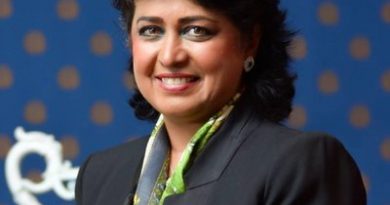Outrage from Human Rights Activists after Russia and China Elected on UN Human Rights Council
Anita Baloukjy
Staff Writer
Russia and China won seats on the United Nations Human Rights Council on October 13, causing outrage among human rights activists, while Saudi Arabia failed to secure a seat. While Russia and Cuba ran unopposed, Saudi Arabia and China were in a five-way race, with Pakistan receiving 169 votes, Uzbekistan 164, Nepal 150, China 139, and Saudi Arabia just 90 votes.
Membership in the UNHRC is distributed between five regional groups: Africa, Asia-Pacific, Latin America and the Caribbean, Western Europe, and Eastern Europe. African and Asia-Pacific states have 13 seats on the council each, Latin America has eight, Western Europe seven, and Eastern Europe receives six seats. Sangeeta Shah, associate professor at the University of Nottingham, told Al Jazeera: “If you want a global institution with global buy-in you have to revise the idea that there have to be quotas for every region.”
The body has long faced criticism for hypocrisy by allowing countries with human rights violations to campaign for a seat. Human Rights Foundation, in collaboration with the non-profit organizations U.N. Watch and Raoul Wallenberg Center for Human Rights, released a 30-page report ahead of the council vote that analyzed the human rights records of the campaigning countries. The report singled out the elected countries of China, Cuba, Pakistan, Russia and Uzbekistan as having poor records on human rights and maintained that they were unqualified for the council, The Hill says.
“Serial rights abusers should not be rewarded with seats on the Human Rights Council,” said Louis Charbonneau, UN director at Human Rights Watch. “China and Saudi Arabia have not only committed massive rights violations at home, but they have tried to undermine the international human rights system they’re demanding to be a part of.”
According to Associated Press, the United States withdrew from the council in June 2018 because it found the body a platform for hypocrisy about human rights, in addition to the belief that the council is anti-Israel.
Each nation state sitting on the council is charged with promoting and protecting human rights. Candidates are asked to publish statements to fellow UN members setting out their human rights qualification.
The Guardian reports Russia claimed “the promotion and protection of human rights is an absolute priority of the foreign policy of the Russian Federation.” The country has been under scrutiny after the accusation of using a military grade nerve agent to poison opposition leader Alexander Navalny. Russia has also been criticized for committing violations of international humanitarian law in its involvement with the Syrian government.
China released a statement which placed heavy emphasis on economic emancipation but said it “guarantees the freedom of all ethnic groups to use and develop their own spoken and written languages.” Meanwhile, China is accused of sending hundreds of thousands of Uighur Muslims into state re-education camps in Xinjiang province. According to Human Rights Watch, 50 UN experts appealed on June 26 for “decisive measures to protect fundamental freedoms in China” in an unprecedented move. This developed into a global appeal by over 400 civil society groups from more than 60 countries, resulting in a joint statement presented by 39 states at the UN on Oct. 6.
Al Jazeera noted that Human Rights Watch labeled China and Saudi Arabia as “two of the world’s most abusive governments.” While Saudi Arabia did not secure a seat, it is evident that UNHCR needs reform. Kevin Jon Heller of the University of Copenhagen said, “there is simply no evidence that countries take human rights records into account when they vote,” highlighting “backroom deals” as the influence.


